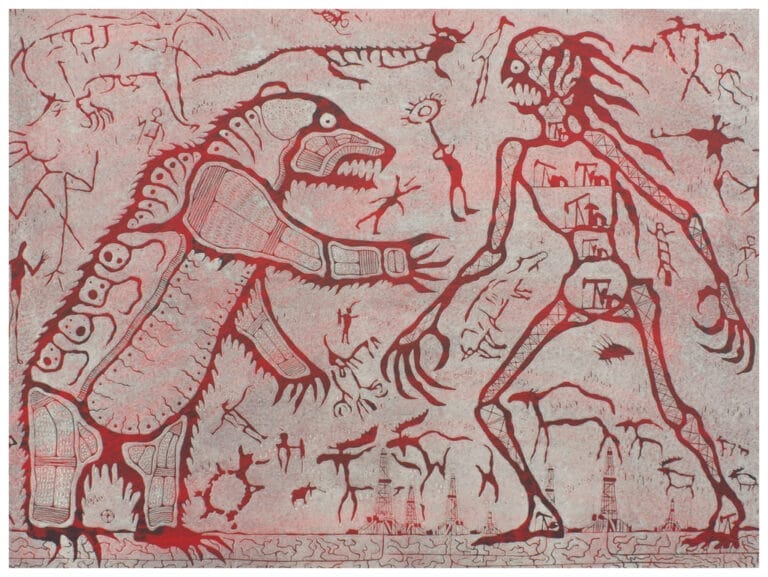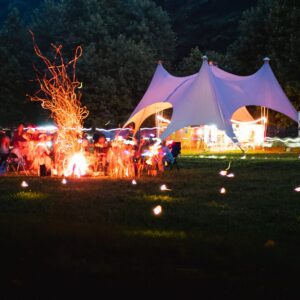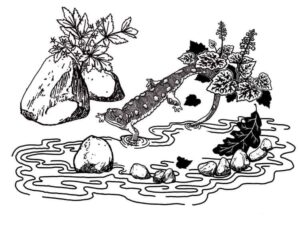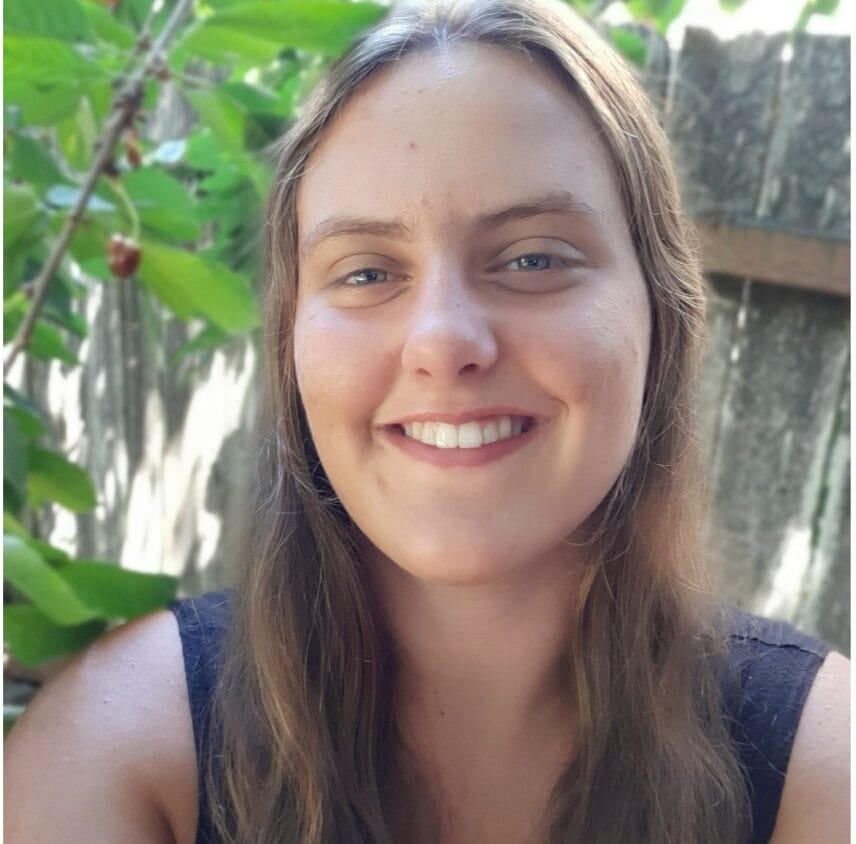Colonists become ancestors too.
The question is, ‘What kind of ancestor do you want to be?’Robin Wall Kimmerer
As I sit down to write about the time of the shadow that we approach with the Winter Solstice, I am in tears and overwhelmed by the depth and breadth of what has become our collective human shadow. The more I talk to people, the more I realize how many of us are struggling right now.
There are the horrors unfolding in our own country as basic human rights slip by the wayside, with our manipulative dual-party system that is so well poised to keep us divided and fighting.
And the nightmare that so many in Gaza are trapped in, with extremist governments battling out their ideals in devastating ways. There are more than 110 armed conflicts around the world right now: with 45 armed separate conflicts in the Middle East; more than 35 armed conflicts in Africa with over 1 million refugees in Sudan alone; 21 armed conflicts in Asia; and 7 armed conflicts in eastern Europe, with Russia trying to overtake Ukraine and neighboring areas.
As always, it is the mothers and fathers, sons and daughters who are trampled in the wake of the hunger of those who seek power. Some of the stories are as old as time, with conflicts going back hundreds to thousands of years. The “Us vs. Them” scenario that our war-mongering leaders would have us believe is rarely so cut and dry.
Our human history of domination is long, indeed. It is maddening to watch centuries of history repeat itself, with the age-old lies of scarcity and greed underlying the motives of all who seek power over others. As late-stage capitalism unravels, I am left to ponder how we got to this point collectively, and more importantly, how do we get out?
Before going further, I need to socially locate myself as a queer (cis-presenting), able-bodied female of European-American descent, raised by a single mom and working-class Italian immigrant grandparents. The dominant culture I come from is American Pop Culture and all it has become: violence, greed, police-state corpocracies. This is not what I or so many others want; but we are bound by tacit consent, having been born into these times. But within the folds of the machine are the threads of humanity: the neighborhoods, communities and subcultures where mutual aid abounds and individual alternate ways of being shine. I am so grateful for my immigrant grandparents and the ample time I spent with them throughout my life, for their non-American lifeways that continue to influence me. This is what first informed me to look outside the status quo for direction; to turn to the older ways, the other than American ways to see things. As I have learned to do, I turn to Indigenous Wisdom when I am struggling and uncertain.
In her beautiful and insightful essay, Greed Does Not Have to Define Our Relationship to Land: On Choosing to Belong to a Place, author Robin Wall Kimmerer (Braiding Sweetgrass) lays it out clearly:
“I can’t speak for all Native people, but we’ve smelled that carrion breath before. We know who this is, the one whose hunger is never slaked—the more he consumes, the hungrier he grows. We’ve met him on our shores, at the Thanksgiving table, at the treaty table, at the Greasy Grass, on the riverbank at Standing Rock, and in the courts.
His mask does not fool us, and having so little left to lose and all that is precious to protect I call him the name of the monster that my ancestors spoke of around the winter campfire, the embodied nightmare of greed, the Windigo…He is the obscene of the Anthropocene, the colon of colonization, the grinder of salt into the original wound of this country.
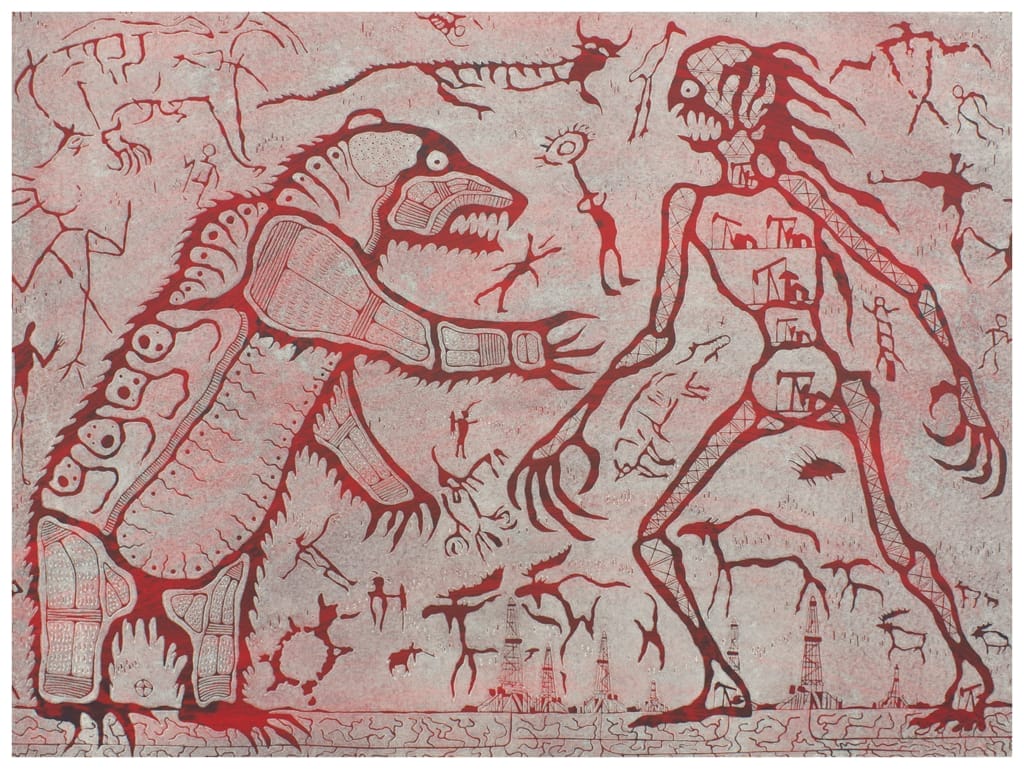
Windigo tales arose in a commons-based society where sharing was a survival value and greed made one a danger to the whole. But in a profit-based society, the indulgent self-interest that our people once held as monstrous is now celebrated as success. Americans are called on to admire what our people viewed as unforgivable.”
Kimmerer goes on to explain how the systematic map-making of the land that happened during colonization sought to erase the lifeways of the people, turning living inspired land into parcels of resources to be owned and exploited by the settlers.
Kimmerer writes, “The Windigo has no moral compass; his needle swings wildly toward the magnetism of whatever profit beckons.” She goes on to teach that the common ground that unites us all, and upon which we must make our stand, is the very land beneath our feet. “What could be more common and shared than the land that gives us all life? Rivers don’t ask for party affiliation before giving you a drink, and berries don’t withhold their gifts from anyone.”
The reality we currently collectively inhabit has been shaped by hundreds of years of The Windigo running amok, wild and unchecked, ravenously seeking to devour all that is left of life, beauty and freedom. Many of us suffer from paradigm paralysis, the feeling that the “way it is” is so firmly set in stone, that it can never change. And so we grow more and more apathetic, dissociated and numb, allowing for the global devastation to continue unfettered. What are we to do?
“Our ancestors had a remedy for Windigo sickness and the contagion it spreads,” Kimmerer writes. “Those who endangered life with their greed were banished from the circle of what they would destroy. They were cast out from the firelight and the bubbling stewpot, from care and community. You colonists also have that power of banishment. Will you use it? It’s not enough to banish the Windigo himself—you must also heal the contagion he has spread. You, right now, can choose to set aside the mindset of the colonizer and become native to place, you can choose to belong.”
What does this look like? How do we banish corrupt leaders and topple oppressive governments? How do we move from a capitalistic corpocracy to the communal ways of our ancestors? How do we become that enmeshed and in love with the land once again? The Firefly Gathering has been working to answer these questions from its inception, back in 2007. Early on, our founders saw what was happening in the world and knew we needed to respond, to reinhabit the land in a good way and to empower our communities with the skills to thrive. While we still have a long way to go, we have also come a long way. Currently, we are re-evaluating our vision and mission, developing solid ways that we will continue to work together to reweave a healthy reality out of the tattered threads of an unraveling world.
We leave you to contemplate this final invocation and teaching from Kimmerer:
“Land is the residence of our more-than-human relatives, the dust of our ancestors, the holder of seeds, the makers of rain; our teacher. Land is not capital to which we have property rights; rather it is the place for which we have moral responsibility in reciprocity for its gift of life. Here is the question we must at last confront: Is land merely a source of belongings, or is it the source of our most profound sense of belonging? We can choose.”
About the Author
Marissa Percoco is the Executive Director of the Firefly Gathering. Having grown up in the concrete labyrinth of the San Francisco bay Area, Marissa escaped to the wilds in college and has never looked back. She is a naturalist by heart, and is deeply rooted in the Earthskills movement, anti-oppression work, her garden, and the old Appalachian soil.
